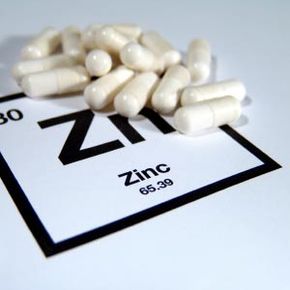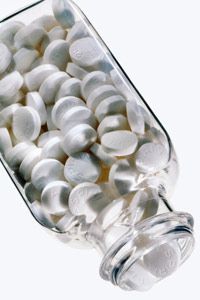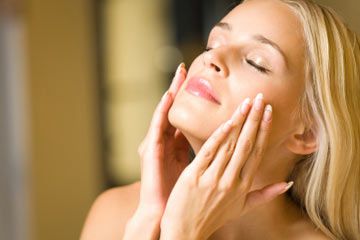Vitamins get a lot of press, but they're not the only nutrients that should be on your health radar. To stay healthy, your body needs a daily dose of the right vitamins and certain minerals. One of those crucial minerals is zinc, which affects a variety of your physiological processes and body parts, including your skin [source: MedlinePlus].
Zinc is like a 24-hour, on-call skin mechanic. It helps repair damaged tissues and heal wounds. Without zinc, your body's inside and outside repair time -- and possible health costs -- go up. Like vitamins, minerals are essential to your overall health and development, helping the body grow and take care of itself. Some research suggests that zinc might be particularly effective in treating topical irritations and injuries, such as acne, skin sores and minor wounds, by helping cells to regenerate [sources: American Academy of Family Physicians, TeensHealth].
Advertisement
Zinc's potential advantages for your skin include the following:
- Acne -- Using zinc topically and taking it orally has shown some potential in preventing and alleviating the inflammation and scarring associated with acne. Zinc may help nip zits in the bud by reducing the amount of natural oil, or sebum, produced in the skin. It may also help heal damaged skin around acne that does develop. Some research has indicated that acne formation results in part from a lack of zinc in the diet [source: Bouchez].
- Scalp conditions -- Dandruff and some fungal infections of the scalp have been shown to respond to the use of shampoos containing zinc [source: MedlinePlus].
- Diaper Rash -- Zinc may help prevent and heal diaper rash [source: MedlinePlus].
Another important use for zinc includes protecting skin from the sun's harmful ultraviolet (UV) rays. Whether you realize it or not, you may already be using zinc to prevent skin cancer every time you apply your favorite sunscreen; many sunscreens that provide broad spectrum UV protection contain zinc oxide [source: Clark]. Recently, researchers have begun conducting further investigations into the anti-cancerous benefits of zinc by looking at how it may help prevent skin cancer recurrence in cancer patients [source: WebMD].
Although more research is needed, studies have also shown that zinc may aid in the treatment of several other skin conditions, including eczema, psoriasis, burns, boils and leg ulcers [source: MedlinePlus]. Although more research needs to be done, it seems clear that zinc does yield many potential health benefits for you and your skin. At the very least, zinc has positive effects in tissue healing and is essential for regular cell growth and regeneration.
Read on to learn what food you can eat to get your daily allowance of zinc.
Advertisement


